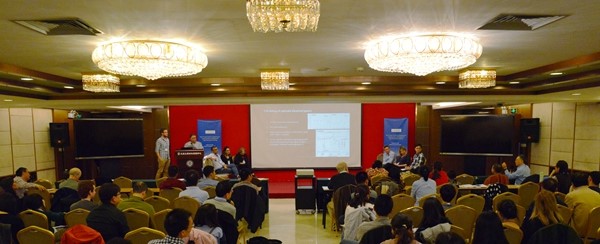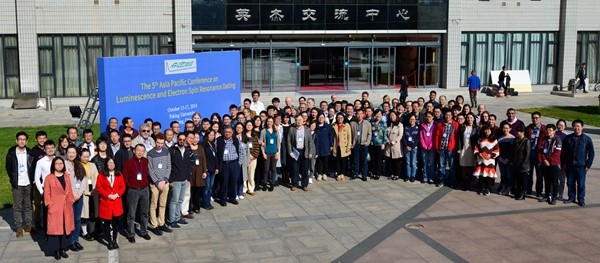Peking University, Oct. 28, 2018: From October 15th to 17th, the 5th Asia Pacific Conference on Luminescence and Electron Spin Resonance Dating (APLED2018) was held in Moonlight Hall of Yingjie Overseas Exchanges Center at PKU.
Convened by Boya Distinguished Professor Zhou Liping, more than 100 experts and scholars from 13 countries and regions attended the conference, including Academician Ashok Singhvi, associate dean of the Indian Academy of Sciences, Professor Rainer Grün, director of Australian Research Centre for Human Evolution (ARCHE), Professor Ian Bailiff from Department of Archaeology, Durham University.
The Conference
Held every three years, APLED is the most important academic conference in the field of luminescence and electron spin resonance (ESR) dating in the Asia Pacific region. For the first time in its history, APLED2018 is hosted in mainland China by Laboratory for Earth Surface Processes (LESP), PKU and Stratigraphy and Chronology Committee of Chinese Association for Quaternary Research .
At the conference, 37 reports and 48 display boards covered the newest developments in luminescence and ESR dating, ranging from advances in methodology to new applications in the fields of quaternary research, tectonic and surface processes interaction and archaeology. The research area covered not only Asia-Pacific, but also Europe, North America and other regions. The Peking University team reported their research on luminescence signals of deep sea sediments in the Bengal Fan, which attracted wide interest and sparked lively discussions.
conferees of APLED2018
Moreover, the conference added display boards and established the editorial forum for professional journals of quaternary dating for the first time. All the innovative arrangements received good feedbacks from the participants.
Written by: Yan Congcong
Edited by: Ma Yaoli, Hu Rong

